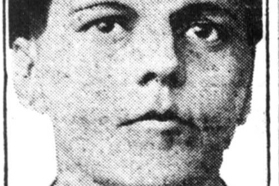Table of Contents
Who is Harry Allen?
Harry Allen, an American journalist and hip-hop activist, was born in 1962 and passed away in 2012. He was widely recognized for his affiliation with the renowned hip-hop group, Public Enemy. Often dubbed as the “Media Assassin,” Allen was known for his candid conversations on race and politics in the media. A native of New York City, he spent his formative years in Strong Island. Allen, of African-American heritage, was openly gay and a staunch advocate for LGBTQ+ rights. His outspokenness extended to sharing his personal experiences as a gay black man in America, shedding light on the unique challenges he faced.
What made Harry Allen famous?
His rise to fame can be traced back to his significant role in the hip-hop group Public Enemy, where he was responsible for communicating the group’s controversial positions to the media and the public as the “Director of Enemy Relations”. Moreover, his contributions to their albums, featuring on tracks like “Don’t Believe the Hype” and “Fight the Power”, further solidified his place in the industry. However, his fame was not limited to music. He was a renowned writer and journalist, with his work appearing in esteemed publications such as The Village Voice, The Source, and Vibe. His writings, which frequently explored the intersection of race, politics, and culture, were instrumental in his rise to prominence.
Is Harry Allen trans?
Harry Allen’s rise to prominence was largely due to his insightful commentary and his ability to question the status quo. Besides his significant contributions to Public Enemy and journalism, Allen was a fervent advocate for LGBTQ+ rights. His candid discussions about his experiences as a gay black man and his criticism of homophobia in the hip-hop community set him apart. Moreover, he was a proponent for HIV/AIDS awareness and prevention. Unfortunately, Allen’s life was cut short in 2012 due to complications from diabetes. Despite his untimely death, he left an indelible mark on the hip-hop community and is remembered for his activism and his efforts to challenge stereotypes and dismantle barriers. His legacy continues to motivate and challenge those who strive to comprehend and transform the world.


